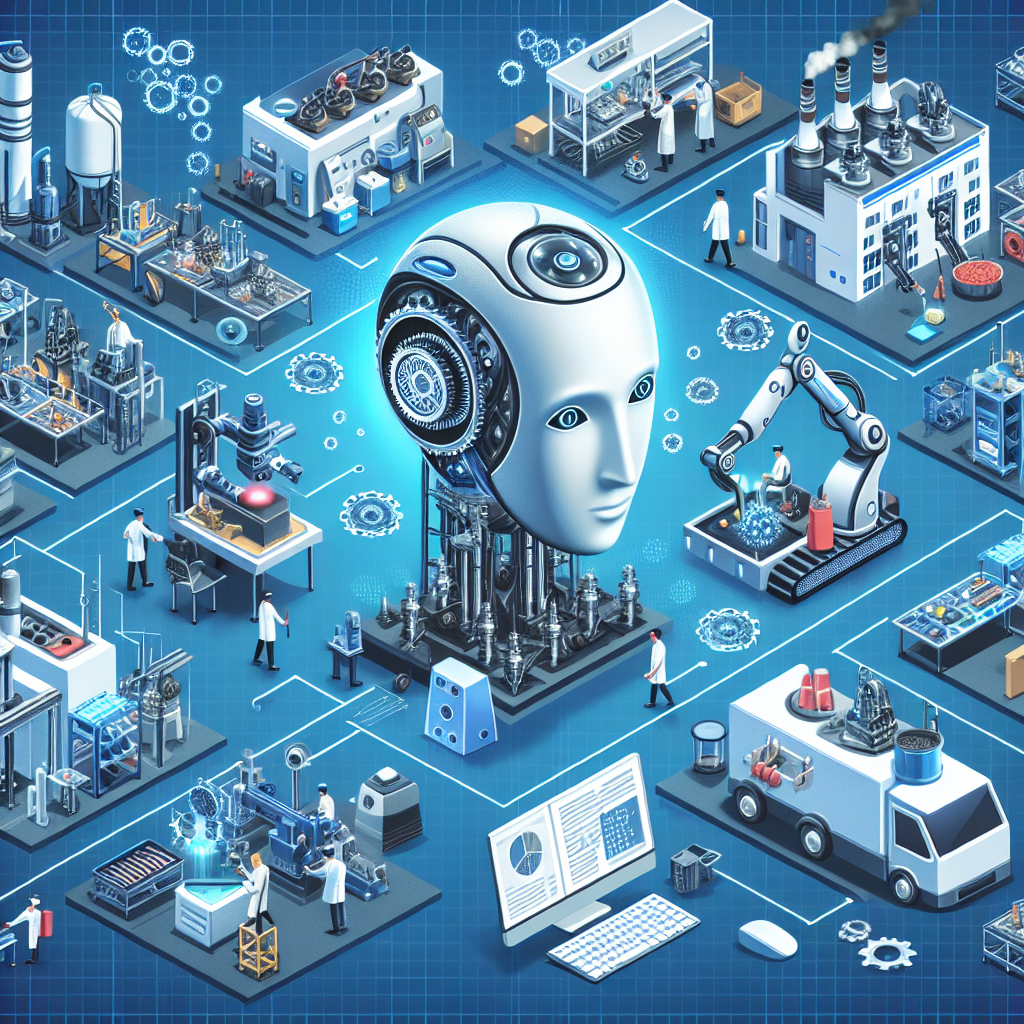Artificial General Intelligence (AGI) is revolutionizing the way industries operate, with many businesses already incorporating this advanced technology into their operations. AGI refers to machines that possess the ability to understand, learn, and apply knowledge across a wide range of tasks. Unlike narrow AI, which is designed for specific tasks, AGI has the potential to perform a variety of tasks at human-level intelligence.
In the workplace, AGI is transforming industries by automating tasks, improving efficiency, and enhancing decision-making processes. From healthcare to finance to manufacturing, businesses are leveraging AGI to gain a competitive edge and drive innovation. In this article, we will explore how AGI is changing industries and the benefits it offers to businesses.
AGI in the Workplace: Transforming Industries
1. Healthcare
In the healthcare industry, AGI is being used to analyze medical data, diagnose diseases, and develop personalized treatment plans. AGI-powered systems can process vast amounts of patient data to identify patterns and trends that human healthcare providers may overlook. This technology is also being used to improve patient outcomes by predicting potential health risks and optimizing treatment protocols.
2. Finance
In the finance industry, AGI is revolutionizing the way financial institutions analyze data, detect fraud, and make investment decisions. AGI-powered algorithms can assess market trends, evaluate risk factors, and predict future outcomes with a high degree of accuracy. This technology is also being used to automate routine tasks, such as customer service and account management, freeing up human employees to focus on more strategic initiatives.
3. Manufacturing
In the manufacturing industry, AGI is streamlining production processes, optimizing supply chains, and enhancing quality control. AGI-powered robots can perform complex tasks with precision and efficiency, reducing the risk of errors and increasing productivity. This technology is also being used to monitor equipment performance, predict maintenance needs, and identify opportunities for process improvement.
4. Retail
In the retail industry, AGI is transforming the way businesses interact with customers, analyze market trends, and manage inventory. AGI-powered systems can analyze customer data to personalize marketing campaigns, recommend products, and enhance the shopping experience. This technology is also being used to automate inventory management, optimize pricing strategies, and improve supply chain efficiency.
Benefits of AGI in the Workplace
1. Enhanced Efficiency
AGI-powered systems can perform tasks faster and more accurately than human employees, leading to increased productivity and cost savings for businesses. By automating routine tasks, businesses can free up employees to focus on more strategic initiatives, driving innovation and growth.
2. Improved Decision-Making
AGI can analyze vast amounts of data, identify patterns and trends, and make data-driven decisions in real-time. This technology can help businesses identify opportunities, mitigate risks, and optimize processes to achieve better outcomes.
3. Personalization
AGI-powered systems can analyze customer data to personalize marketing campaigns, recommend products, and enhance the customer experience. By tailoring products and services to individual preferences, businesses can increase customer satisfaction and loyalty.
4. Predictive Analytics
AGI can predict future trends, outcomes, and risks with a high degree of accuracy. This technology can help businesses anticipate market changes, optimize supply chains, and make proactive decisions to stay ahead of the competition.
FAQs about AGI in the Workplace
Q: What industries can benefit from AGI?
A: AGI can benefit a wide range of industries, including healthcare, finance, manufacturing, retail, and more. Any industry that relies on data analysis, decision-making, and automation can leverage AGI to improve efficiency and drive innovation.
Q: How can businesses implement AGI in the workplace?
A: Businesses can implement AGI in the workplace by investing in AGI-powered systems, training employees on how to use this technology, and integrating AGI into existing processes and workflows. It is important for businesses to work with experienced AI developers to ensure a successful implementation.
Q: What are the potential challenges of using AGI in the workplace?
A: Some potential challenges of using AGI in the workplace include data privacy concerns, ethical considerations, and the risk of job displacement. Businesses must address these challenges by implementing robust data security measures, developing ethical guidelines for AI use, and retraining employees for new roles.
Q: How can businesses measure the ROI of implementing AGI in the workplace?
A: Businesses can measure the ROI of implementing AGI in the workplace by tracking key performance indicators, such as cost savings, productivity gains, customer satisfaction, and revenue growth. By analyzing these metrics, businesses can quantify the impact of AGI on their bottom line.
In conclusion, AGI is transforming industries by automating tasks, improving efficiency, and enhancing decision-making processes. Businesses that leverage AGI in the workplace can gain a competitive edge, drive innovation, and achieve better outcomes for their customers and employees. By understanding the benefits of AGI and addressing potential challenges, businesses can successfully implement this advanced technology to transform their operations and stay ahead of the competition.

